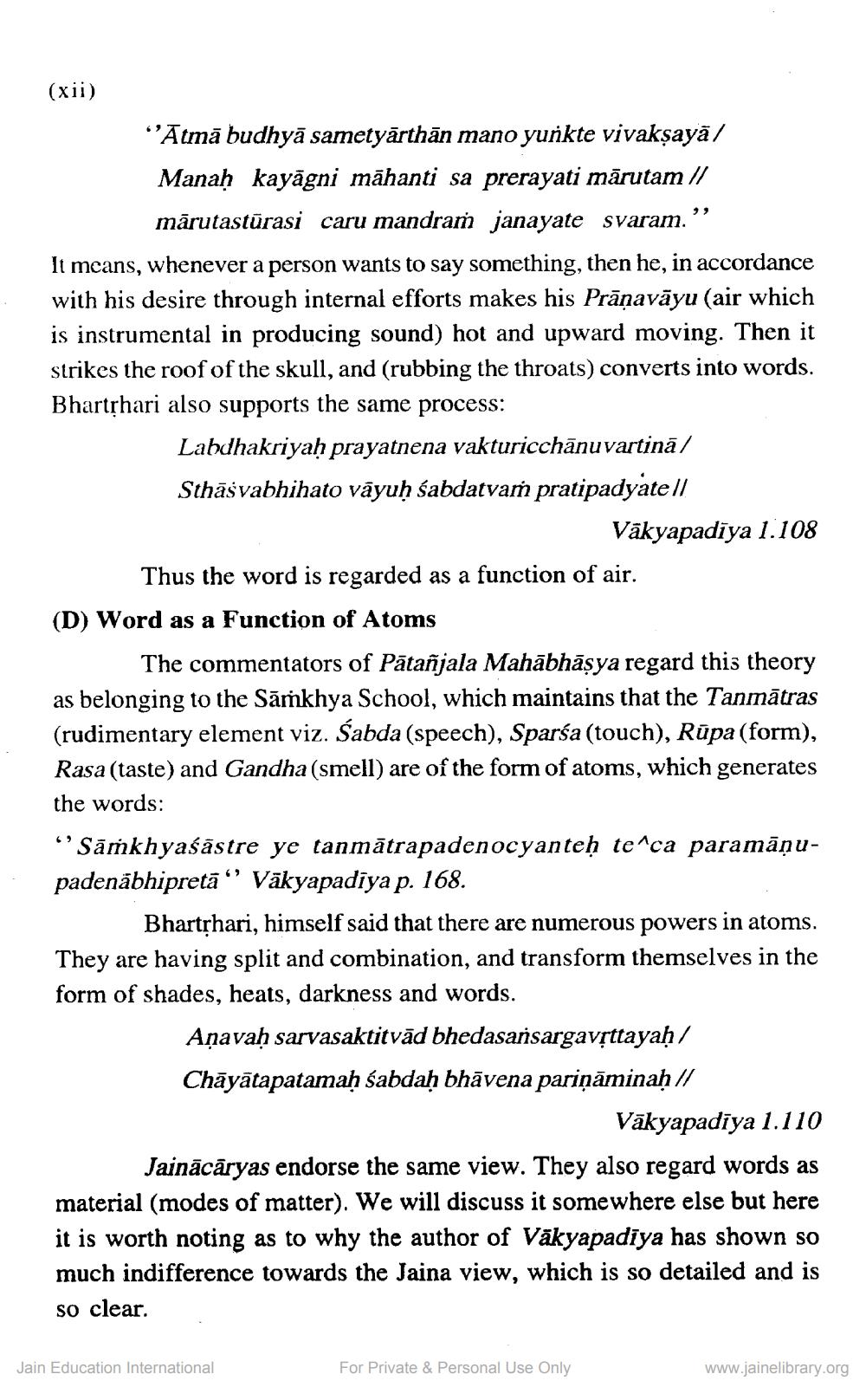________________
(xii)
“'Atmā budhyā sametyārthān mano yunkte vivakṣayā/
Manaḥ kayāgni māhanti sa prerayati mārutam //
mārutastūrasi caru mandram janayate svaram.” It means, whenever a person wants to say something, then he, in accordance with his desire through internal efforts makes his Prāņavāyu (air which is instrumental in producing sound) hot and upward moving. Then it strikes the roof of the skull, and (rubbing the throats) converts into words. Bhartshari also supports the same process:
Labdhakriyaḥ prayatnena vakturicchānuvartinā/ Sthāsvabhihato vāyuḥ śabdatvas pratipadyatell
Vākyapadīya 1.108 Thus the word is regarded as a function of air. (D) Word as a Function of Atoms
The commentators of Pātañjala Mahābhāșya regard this theory as belonging to the Sāṁkhya School, which maintains that the Tanmātras (rudimentary element viz. Sabda (speech), Sparśa (touch), Rūpa (form), Rasa (taste) and Gandha (smell) are of the form of atoms, which generates the words: “Sārkhyaśāstre ye tanmātrapadenocyanteh te^ca paramāņupadenābhipretā “' Vākyapadiya p. 168.
Bhartshari, himself said that there are numerous powers in atoms They are having split and combination, and transform themselves in the form of shades, heats, darkness and words.
Anavaḥ sarvasaktitvād bhedasansargavsttayaḥ/ Chāyātapatamaḥ śabdaḥ bhāvena pariņāminaḥ//
Vākyapadiya 1.110 Jainācāryas endorse the same view. They also regard words as material (modes of matter). We will discuss it somewhere else but here it is worth noting as to why the author of Vākyapadiya has shown so much indifference towards the Jaina view, which is so detailed and is so clear.
Jain Education International
For Private & Personal Use Only
www.jainelibrary.org




